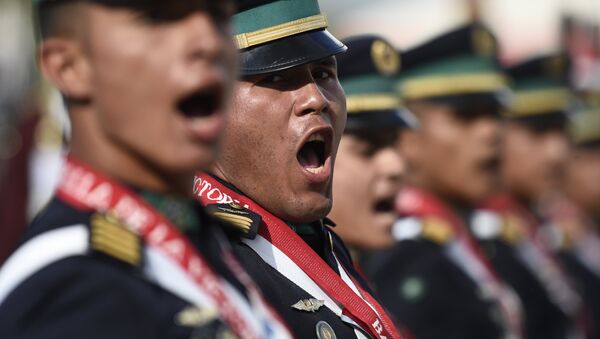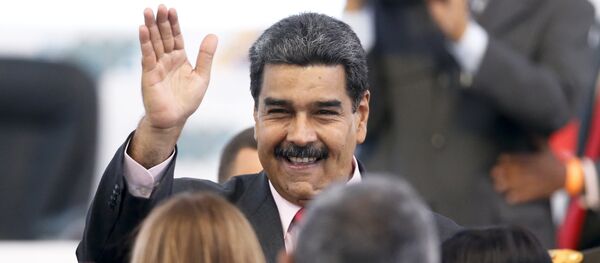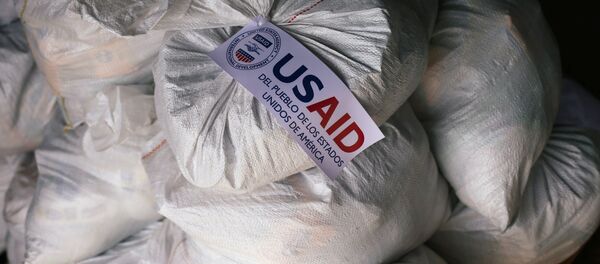"Over 60 Venezuelan servicemen came to us, asking for asylum in the country", Holmes Trujillo told a press conference in the city of Cucuta near the border with Venezuela.
According to the minister, there is a certain procedure that these people now have to go through.
Earlier in February, local media reported that several high-ranking officers switched sides and recognised the opposition leader, Juan Guaido as president, denying Nicolas Maduros' power.
Colombia Shuts Northeastern Border Crossings
Bogota decided to partially shut the country's northeastern border with Venezuela after the Venezuelan opposition's efforts to let trucks with unauthorised humanitarian aid into the country led to clashes between Venezuelan security officers and pro-aid protesters, Director General of the Colombian migration agency Christian Kruger Sarmiento said.
"As a result of the unrest that took place today [on Saturday] at different checkpoints here, in the North Santander department, caused by a peaceful attempt to deliver humanitarian aid to Venezuela, Mr President [Ivan Duque] has decided to close the checkpoints on 24 and 25 February", Kruger Sarmiento said in a video address, released on the agency's Twitter feed.
READ MORE: State Dept Denies Claims Shipments for Venezuela Are Anything Other Than Aid
According to the official, the closure of the border is needed to assess the damage inflicted to the infrastructure during Saturday's events and to come up with measures that would allow Bogota to reopen the border crossings on 26 February.
Meanwhile, a group of radicals attacked the Venezuelan border post in the Brazilian northern border state of Pacaraima and set a vehicle belonging to the Venezuelan National Guard on fire. The attackers also threw stones at the officers, who were forced to use tear gas.
Following the attempts to illegally bring humanitarian aid into Venezuela from Colombia, President Nicolas Maduro announced that Caracas was cutting off diplomatic and political relations with Bogota.
READ MORE: No Possibility of Coup in Venezuela, Risk of External Meddling Remains — Caracas
The situation in crisis-torn Venezuela escalated on 23 January when Guaido declared himself interim president, disputing last year's reelection of the incumbent president, Nicolas Maduro. The United States and some other countries almost immediately recognised Guaido. Russia, China, Mexico, among other nations, voiced support for Maduro, who, in turn, accused Washington of orchestrating a coup.




